Bordetella (Pertussis) Ayurvedic Treatment: Whooping cough, scientifically known as pertussis, remains a significant public health concern worldwide. This highly contagious respiratory illness caused by the Bordetella pertussis bacteria can be particularly severe for infants and young children. While conventional treatments exist, many individuals seek alternative therapies such as Bordetella (pertussis) ayurvedic treatment, or medicine. Ayurveda, the ancient system of Indian medicine, advocates the natural way of treating whooping cough by using herbal medicines extracted from plants and also calls for lifestyle modifications.
Bordetella (Pertussis) Ayurvedic Treatment: Ayurvedic View on Pertussis
According to Ayurveda, pertussis is the state of an imbalance of the body’s doshas in Vata and Kapha. The dry and sporadic cough that comes up during this illness is due to aggravation of Vata dosha, while excessive mucus production is associated with a vitiation of Kapha dosha. Basti is a kind of Ayurvedic therapy that can eliminate the accumulation of toxins, restore the balance of the digestive system, and alleviate constipation, a typically observed problem in pertussis.
Through basti treatment, medicated enema and decoctions are administered, which is one of the most expected ayurvedic therapies for diseases like pertussis. Dr. M. S. Haque and Dr. A. Perwaiz at Mshaque Clinic say, through a combination of herbal remedies, dietary suggestions, and lifestyle alterations, ayurveda practitioners are inspired to reconstruct the imbalance.
Bordetella (Pertussis) Ayurvedic Treatment: Ayurvedic Food and Herbs for Bordetella (Pertussis) Treatment
Ayurveda recommends herbal remedies and dietary modifications to ease cough and breathing problems as well as to help the body heal itself. It is probably the productive Whooping cough ayurvedic syrup that comprises Vasa (Adhatoda vasica) and Kantakari (Solanum xanthocarpum) that can noticeably regulate breathing in pertussis. Undefined
Our Other Articles :
Campylobacteriosis Ayurvedic Treatment- All You Need To Know
Flu Treatment In Ayurveda- All You Need To Know
Obesity Treatment In Ayurveda- All You Need To Know
Libido Treatment In Ayurveda- All You Need to Know
Triphala For High Blood Pressure- All You Need To Know
Bordetella (Pertussis) Ayurvedic Treatment: Herbal Remedies
- Tulsi (Holy Basil): It is known for being anti-inflammatory and expectorant, which can ease the respiratory tract and put an end to coughing.
- Licorice Root: This herb lubricates irritated respiratory passages, providing the necessary coating and ease by reducing coughing and wheezing.
- Ginger: Possessing a powerful anti-inflammatory and decongestant effect, ginger may prove to be a useful remedy for respiratory discomfort and assisting in mucus evacuation.
- Turmeric: This super powerful anti-inflammatory and antioxidant spice can assist in calming down the inflammation of the respiratory system and developing the body’s immunity.
- Trikatu churna: A powerful Ayurvedic medicine for chronic cough comprising black pepper, long pepper, and dried ginger. It helps in reducing coughing and clears mucus and other liquids from the airways.
- Vasa (Adhatoda vasica): A herb that is also known for its treatment effects on cough, bronchitis, and respiratory disorders.
- Kantakari (Solanum xanthocarpum): A tree with anti-inflammatory and expectorant properties, it can be useful for the management of cough and respiratory diseases.
- Sitopaladi churna: With a blend of these impactful herbs, such as Tulsi (holy basil), cinnamon, and licorice root, whose cough-suppressing and airway-expanding functions are well-known. This is the best ayurvedic medicine for dry cough.
Bordetella (Pertussis) Ayurvedic Treatment: Dietary Recommendations
- Hot bowls of hearty soups and stabilizers can give the body the needed hydration and nutrients during recovery.
- Blending spices such as pepper, cinnamon, and cardamom into our food helps us to ease a cough and enhance the immunity of the respiratory system.
According to Dr. M. S. Haque and Dr. A. Perwaiz at Mshaque Clinic, you can take ghee (clarified butter) as a cough ayurvedic medicine since it helps in cooling your respiratory tract.
Bordetella (Pertussis) Ayurvedic Treatment: Ayurvedic Therapies for Pertussis
Ayurvedic practitioners may recommend various therapies to complement the herbal and dietary interventions for treating pertussis:
- Nasya (Nasal Administration)
The Nasya technique involves the instillation of medicated oils or herbal decoctions through the nasal orifice. This treatment allows the organism to remove respiratory congestion and help mucus flow.
- Vamana (Therapeutic Vomiting)
In the struggle against Kapha (mucus) overflowing the respiratory tract, Vamana karma might be a method of choice. Here, a knowledgeable Ayurvedic doctor will guide you.
- Basti (Enema Therapy)
Basti, the therapy of enema with medicine, consists of the insertion of therapeutic decoctions or oils in the bowels via the rectum. Amongst the Basti enema benefits are removing toxins from the system and reducing respiratory complications caused by whooping cough. Though generally safe, basti karma (medicated enema) may have some Ayurvedic basti side effects such as abdominal discomfort, cramping, and diarrhea if not used properly.
- Abhyanga (Ayurvedic Massage)
Abhyanga, a massage with warm, ayurvedic oils that are medicated in nature, can be of great help in treating muscle tension and also promoting lymphatic drainage. It mainly supports the respiratory system.
- Oil Basti
Oil basti is a medicine bath procedure in which medicated oils are applied. Oil basti benefits include taking care of chest congestion, regaining calmness, and also supporting respiratory function.
When you have having Ayurvedic treatment plan taking from the illness pertussis, it is so important to visit a skilled Ayurvedic specialist. It does this by giving tailor-made guidance to the person with his/her unique indications like sickness, body constitution, and dosha.
The significance of holistic healing is well appreciated at Mshaque Clinic. Our Ayurvedic team including Dr. M. S. Haque, and Dr. A. Perwaiz has vast experience and is diligently offering comprehensive Ayurvedic care to people suffering from pertussis. We have a variety of treatments, as well as personalized treatment plans aimed at treating the disease at the core level and supporting the body’s natural recovery.
Conclusion
The Bordetella (pertussis) ayurvedic treatment is an alternative that combines holistic and natural principles to treat whooping cough. Through herbal medicines, dietary adjustments, and Ayurveda treatments, this treatment aims to clear the respiratory system of imbalances to ensure that the symptoms are alleviated, the system gets strengthened and this leads to overall wellness. Mshaque Clinic has been created to deliver individualized holistic Ayurvedic treatment for people looking for relief from pertussis and other respiratory problems.
If you or a loved one is facing pertussis and searching for a natural, holistic way to treat it, Mshaque Clinic is here for you as well. Being experienced Ayurvedic experts, our doctors – Dr. M. S. Haque and Dr. A. Perwaiz, will closely work with you to develop your treatment plan according to your needs. Book an appointment today and embark on a journey geared towards achieving the perfect respiratory health and wellness.
FAQs
What is the Ayurvedic treatment for pertussis?
Ayurvedic treatment for pertussis involves a combination of herbal remedies, dietary modifications, and therapies such as nasya, Vamana, basti, and abhyanga. These aim to restore balance in the body, alleviate respiratory discomfort, and support overall healing.
Which Ayurvedic medicine is best for cough in the lungs?
Several Ayurvedic herbs are effective for treating cough-related lung conditions. Tulsi, licorice root, ginger, and turmeric are commonly recommended due to their anti-inflammatory, expectorant, and soothing properties for the respiratory system.
What herbs are good for whooping cough?
Some of the best Ayurvedic herbs for whooping cough include tulsi, licorice root, ginger, and turmeric. These herbs possess anti-inflammatory, expectorant, and demulcent properties that can help alleviate the severe coughing fits associated with pertussis.
How do you treat pertussis at home?
While seeking professional Ayurvedic care is recommended for pertussis, some home remedies can be helpful. These include consuming warm fluids like herbal teas, using humidifiers to keep the air moist, and practicing breathing exercises or steam inhalation to relieve respiratory discomfort.
Content Checked and Verified By

Dr. A. Perwaiz
B.U.M.S (KOL) IMRP (OXFORD, UK) FIID (UNSW) AUSTRALIA)



